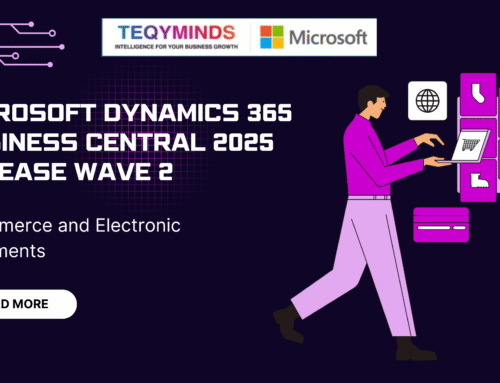Selecting the right ERP (Enterprise Resource Planning) system is a big decision for any business. Traditional ERP systems, often installed on company servers, have been a staple for years. However, modern cloud-based solutions like Dynamics 365 Business Central are changing the game by offering greater flexibility, reduced costs, and improved efficiency.
Let’s dive into the differences to help you decide what fits your business needs best.
1. Cloud vs. On-Premise Systems
Business Central (Cloud-Based ERP):
- Operates in the cloud, eliminating the need for expensive servers.
- Enables access from anywhere, making remote work easy.
- Automatic updates ensure you always have the latest features and security.
Traditional ERP (On-Premise):
- Requires significant investment in servers and IT support.
- Access is limited to your office network, restricting flexibility.
- Upgrades and changes can be time-consuming and costly.
2. Integration and Compatibility
Business Central:
- Connects effortlessly with tools like Microsoft 365, Power BI, and other business apps.
- Allows for automation using Power Automate and provides AI insights for better decision-making.
- Supports quick integration with supply chain, CRM, and e-commerce systems.
Traditional ERP:
- Linking with modern tools often requires extensive customization.
- Compatibility with newer systems can be a challenge.
- Limited support for advanced technologies like AI and automation.
3. Cost Comparison
Business Central:
- Subscription-based pricing avoids large upfront costs.
- Saves on IT infrastructure and maintenance expenses.
- Grows with your business, adapting to your needs without major investments.
Traditional ERP:
- Demands high initial costs for servers, licenses, and installations.
- Ongoing IT and maintenance fees can be significant.
- Customizations and updates often add to the overall expense.
4. Ease of Use
Business Central:
- It has a simple, modern interface that’s easy to navigate.
- Quick implementation with less training needed.
- AI-powered insights make decision-making smoother.
Traditional ERP:
- Interfaces are often outdated and complex to use.
- Employees may require extensive training to operate the system.
- Customizations can make it rigid and hard to adapt.
Conclusion:
If your business needs a flexible, cost-effective, and modern ERP solution, Dynamics 365 Business Central is an excellent choice. It’s built to help companies adapt and thrive in today’s competitive landscape.
On the other hand, Traditional ERP systems can still work well for large enterprises with specific customization requirements and an in-house IT team. Ultimately, the right choice depends on your business size, budget, and operational priorities.






Leave A Comment